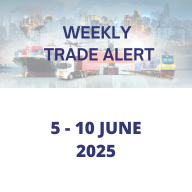Banking/ RBI regulations for exporters

Export Sector
Federation of Indian Export Organisations
162 week ago — 16 min read
In our previous articles we discussed how to start an export business and general provisions regarding export and import. In this article we will address frequently asked questions regarding banking and Reserve Bank of India (RBI) regulations for exporters.
Q. What is the role of the Reserve Bank of India in exports?
The RBI regulates the foreign exchange matters as per the FEMA Act. It issues guidelines for realization of export proceeds by the exporter from time to time through the authorized dealers.
Q. Is there is any restriction on invoicing of export contracts in Indian Rupee?
As per the FEMA Act, there is no such restriction. All export contracts & invoices may be denominated either in Indian rupee or in any freely foreign exchange. However, to avail export benefits under Foreign Trade Policy export proceeds is required to be realised in freely convertible currency.
Q. What is the time period for submission of export documents to the AD (Authorised Dealer - Scheduled Commercial, State or Urban Cooperative) Bank?
Within 21 days from the date of export, the documents are required to be submitted to the AD Bank.
Q. What happens in cases where there is a delay in submission of export documents to the AD Bank?
On late submission of the export documents after the prescribed period of 21 days from date of export, Banks may handle them without prior approval of the Reserve Bank, provided they are satisfied with the reasons for the delay.
Q. Is it possible to dispatch the export documents directly to the overseas buyer?
Only status holder and units in SEZ are permitted to dispatch the export documents to the consignees outside India subject to the terms and conditions. Direct dispatch may also be made if advance payment or an irrevocable letter of credit has been received for the full value of the export shipment and the underlying sale contract/letter of credit provides for dispatch of documents direct to the consignee or his agent resident in the country of final destination of goods.
Q. What is the time period for realisation of export proceeds?
Time period for realisation of export proceeds for all exporters is NINE Months.
Q. In which manner, the payment is required to be received?
The full value of the goods exported should be received through an AD Bank preferably in a freely convertible currency.
Q. What are the conditions for advance against exports?
Where an exporter receives advance payment (with or without interest), from a buyer outside India, the exporter shall be under an obligation to ensure that the shipment of goods is made within one year from the date of receipt of advance payment.
Q. Whether third party/third country payment is allowed?
Yes, it is allowed subject to certain conditions like tripartite agreement, routing the payment through banking channel, declaring third party/country remittances in the Shipping Bill etc.
Q. What happens in the cases where there is a reduction in the invoice and incase of change of buyer/consignee?
If, after a bill has been negotiated or sent for collection, its amount is to be reduced for any reason, banks may approve such reduction, if satisfied about genuineness of the request, subject to conditions. In the event of change of buyer the documents to be transferred to the new buyer provided the reduction in value, if any, involved does not exceed 25 per cent of the invoice value and the realization of export proceeds is not delayed beyond the period of 9 months from the date of export.
Q. What is the procedure on sale of goods at overseas exhibitions/trade fairs?
RBI’s guidelines allow opening of a temporary foreign currency account abroad in which exporters can deposit foreign exchange obtained by sale of goods and operate the account during stay abroad. The balance is required to be repatriated to India through banking channel.
Q. What happens to Overdue Bill?
If the exporter fails to arrange for delivery of the proceeds within the stipulated period or seek extension of time beyond the stipulated period, the matter is reported to the Regional Office concerned of the Reserve Bank stating, where possible, the reason for the delay in realizing the proceeds. The duplicate copies of EDF/SOFTEX Forms should, continue to be held by Banks until the full proceeds are realized, except in case of undrawn balances. With operationalization of EDPMS on March 01, 2014, realization of all export transaction for shipping documents after February 28, 2014 should be reported in EDPMS.
Q. What is the procedure for extension time period of realisation of export proceeds?
The time period for realisation of export proceeds may be extended by the AD Bank if it is satisfied that the exporter has not been able to realize export proceeds for reasons beyond his control or, if the exporter submits a declaration that the export proceeds will be realized during the extended period. Also, the total outstanding of the exporter does not exceed USD one million or 10 per cent of the average export realizations during the preceding three financial years, whichever is higher.
Q. How is Write-off of unrealised export bills done?
| Self “write-off” by an exporter (Other than Status Holder Exporter) | 5%* |
| Self “write-off” by Status Holder Exporters | 10% |
| ‘Write-off” by Authorized Dealer Bank | 10% |
| *of the total export proceeds realized during the previous calendar year. | |
Q. What is an Agency Commission and how much commission is payable?
Agency commission is the commission paid by the Indian exporter to his overseas Agent at a percentage of the f.o.b. value of exports for his services in securing export contracts. The rate of commission specified by RBI is 12.5%. However, Banks may allow payment of commission at higher rate either by remittance or by deduction from invoice value, on application submitted by the exporter.
Q. What is an e-BRC?
Electronic Bank Realization Certificate (BRC) is uploaded on DGFT System by Banks on realization of payment against exports.. Any firm applying for benefits under Foreign Trade Policy is required to furnish e-BRC as a proof of realization of payment against exports made.
Q. How are Short Shipments and Shut out Shipments treated?
When part of a shipment covered by an EDF already filed with Customs is short-shipped, the exporter is required to give notice of short-shipment to the Customs in the form and manner prescribed. In case of delay in obtaining certified short-shipment notice from the Customs, the exporter should give an undertaking to the AD banks to the effect that he has filed the shorts shipment notice with the Customs and that he will furnish it as soon as it is obtained. Where a shipment has been entirely shut out and there is delay in making arrangements to re-ship, the exporter will give notice in duplicate to the Customs in the form and manner prescribed, attaching thereto the unused duplicate copy of EDF and the shipping bill. The Customs will verify that the shipment was actually shut out, certify the copy of the notice as correct and forward it to the Reserve Bank together with unused duplicate copy of the EDF. In this case, the original EDF received earlier from Customs will be cancelled.
Q. What is a Merchanting trade transaction and the procedure of this transaction?
Merchanting Trade is when the supplier of goods will be resident in one foreign country; the buyer of goods will be resident in another foreign country; the merchant or the intermediary will be resident in India. Both the legs of a Merchanting Trade Transaction should be through the same AD bank. The entire Merchanting Trade Transactions should be completed within an overall period of nine months and there should not be any outlay of foreign exchange beyond four months. In case advance against the export leg is received by the Merchanting Trader, AD bank will ensures that the same is earmarked for making payment for the respective import leg. Merchanting Traders are allowed to make advance payment for the import leg on demand made by the overseas seller. In case where inward remittance from the overseas buyer is not received before the outward remittance to the overseas supplier, AD bank may handle such transactions by providing facility based on commercial judgment. It may, however, be ensured that any such advance payment for the import leg beyond USD 200,000/- per transaction, should be made against Bank Guarantee / LC from an international bank of repute, except in cases and to the extent where payment for export leg has been received in advance.
Q. Whether opening of Foreign Offices is allowed?
Yes, application may be made to the AD Bank in this regard. At the time of setting up of the office, AD Category – I banks may allow remittances towards initial expenses up to fifteen per cent of the average annual sales/income or turnover during the last two financial years or up to twenty-five per cent of the net worth, whichever is higher.
Q. How to send remittances from India to offices abroad?
For recurring expenses, remittances up to ten per cent of the average annual sales/income or turnover during the last two financial years may be sent for the purpose of normal business operations of the office (trading/non-trading)/branch or representative office outside India subject to terms and conditions. For this purposes request may be made to the AD Bank for release of the payment to the Foreign Office.
Q. Where to apply for an EDF (Export Declaration Form) waiver and in which cases. How to take EDF approval for cases where goods are being exported for re-import after repairs/maintenance/ testing/calibration, etc?
Exporters are required to approach the Banks for grant of EDF waiver and banks may consider requests for grant of EDF waiver from exporters as per prescribed conditions in the case of goods for display in foreign fairs/exhibitions etc. Banks may consider request from exporters for granting EDF approval in cases where goods are being exported for re-import after repairs / maintenance / testing / calibration, etc., subject to the condition that the exporter shall produce relative Bill of Entry within one month of re-import of the exported item from India.
Q. What is an EEFC Account?
Exchange Earners Foreign Currency account is to enable exchange earners to save on conversion/transactions cost while undertaking a forex transaction. An exporter is allowed to credit 100% of their foreign earnings to their EEFC accounts.
Q. How long can an exporter keep deposits in EEFC account and whether interest will be applicable?
The sum total of the accruals in the account during a calendar month is required to be converted in INR on or before the last day of the succeeding calendar month. The EEFC account is a non-interest bearing current account.
Q. What is a Gold Card Scheme?
This is a Reserve Bank of India Scheme for creditworthy exporters with good track record for easy availability of export credit on best terms. The Scheme envisages certain additional benefits based on the record of performance of the exporters. The Gold Card holder would enjoy simpler and more efficient credit delivery mechanism in recognition of his good track record. Gold Card under the Scheme may be issued to all eligible exporters including those in the small and medium sectors who satisfy the laid down conditions.
Q. What is an Interest Equalization Scheme?
Under the Scheme, the Interest Equalisation @ 3% per annum has been made available to eligible exporters which included manufacturer exporters and Merchant Exporters for exports in the identified 416 four digit tariff lines and @ 5% per annumto all MSME exporters across all their merchandise exports. The Scheme is available on Pre and Post Shipment Rupee Export Credit.
Q. What is a Diamond Dollar Account (DDA)?
Under the Scheme of DDA, firms/companies may deal in purchase/sale of rough/cut/polish diamonds, precious metal jewelry etc subject to stipulated conditions.
Q. How is consolidation of Air cargo treated?
Where air cargo is shipped under consolidation, the airline company’s Master Airway Bill will be issued to the Consolidating Cargo Agent. The Cargo agent in turn will issue his own House Airway Bills (HAWBs) to individual shippers. Banks will negotiate HAWBs only if the relative letter of credit specifically provides for negotiation of these documents in lieu of Airway Bills issued by the airline company.
Q. How is consolidation of Sea cargo treated?
Banks may accept Forwarder’s Cargo Receipts (FCR) issued by IATA approved agents, in lieu of bills of lading, for negotiation / collection of shipping documents, in respect of export transactions backed by letters of credit, if the relative letter of credit specifically provides for negotiation of this document, in lieu of bill of lading Further, Authorized Dealers may, at their discretion, also accept FCR for purchase/discount/collection of shipping documents even in cases, where export transactions are not backed by letters of credit, provided their 'relative sale contract' with overseas buyer provides for acceptance of FCR as a shipping document in lieu of bill of lading.
Q. What happen in case a loss of shipment in transit?
In cases where the claim is payable abroad, the banks arrange to collect the full amount of claim due on the lost shipment, through the medium of their overseas branch/correspondent and release the duplicate copy of EDF only after the amount has been collected. Banks ensures that amounts of claims on shipments lost in transit which are partially settled directly by shipping companies/airlines under carrier’s liability abroad are also repatriated to India by exporters.
Having an Online Store (ecommerce website) empowers exporters to showcase their products and services effortlessly to international buyers across the world. GlobalLinker recently conducted a webinar to highlight the simple steps for building a strong digital presence for your business to boost export opportunities. Watch the highlights here.
Image source: Canva
Disclaimer: The views and opinions expressed in this article are those of the author and do not necessarily reflect the views, official policy or position of GlobalLinker.
Posted by
Federation of Indian Export OrganisationsFIEO is the apex international trade promotion organisation of India. Directly and indirectly it represents the interest of over 200,000 exporters in India. FIEO has 17 offices in...
View Federation of Indian 's profile
Most read this week













Comments
Share this content
Please login or Register to join the discussion